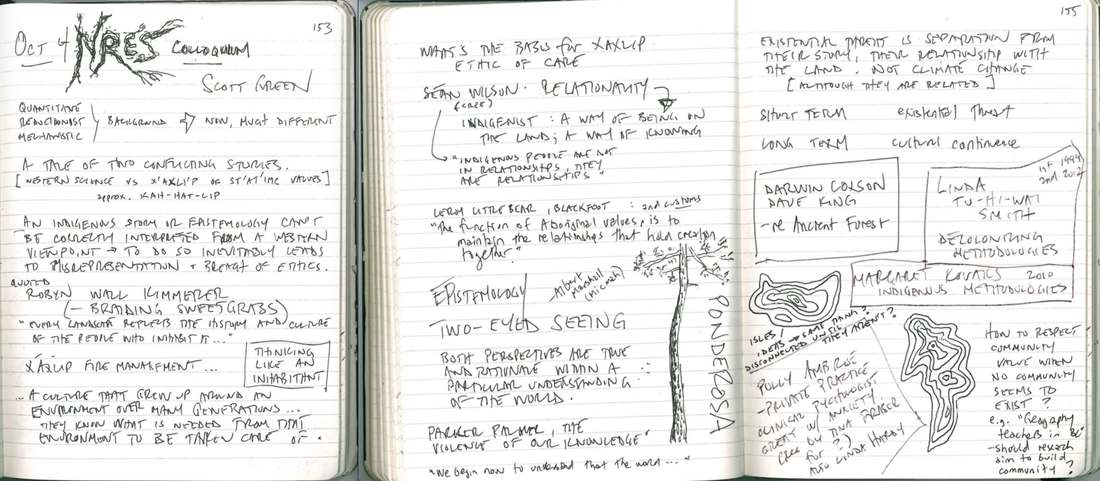This was one of those talks where I was able to consolidate diverse past learning in a fresh context -- Dr. Scott Green's presentation synthesized a great deal of what I have come to know in recent years about the contrast between Western Science and Indigenous Ways of Knowing. In particular, his use of the term Two-Eyed Seeing was new to me, but as has happened many time this year, within weeks this concept has come up twice more in conversation with others. My overlapping roles as a teacher in the school district, a professional development coordinator interacting with many different networks, someone with a few hats to wear in the teacher training program at UNBC, and a PhD student has led to an amazing "proliferation of resemblances" this year -- everything is starting to blend together, and I am finding the ride exhilarating. One of these resemblances was the reference in Scott Green's talk to Braiding Sweetgrass by Robyn Wall Kimmerer. This book was shared with me a couple of years ago by a colleague and is now part of the readings in the course I teach for the School of Education. Kimmerer develops the idea that Western Science and Indigenous Knowledge can be woven together. She herself is an environmental biologist and member of the Potawatomi Nation, and brings both of these backgrounds into her work, thought, and storytelling. Like on of the access points to our course, she begins her book with a version of the story about the woman who fell from the sky.
A question that came to my mind during Scott Green's talk: If we accept that there are other ways to know the world that Western Science has typically dismissed, then how do we listen to these stories in Education where there is so much pressure to embrace a critical stance, indeed a stance that is suspicious of narrative and is focused on logical order?
A question that came to my mind during Scott Green's talk: If we accept that there are other ways to know the world that Western Science has typically dismissed, then how do we listen to these stories in Education where there is so much pressure to embrace a critical stance, indeed a stance that is suspicious of narrative and is focused on logical order?

 RSS Feed
RSS Feed